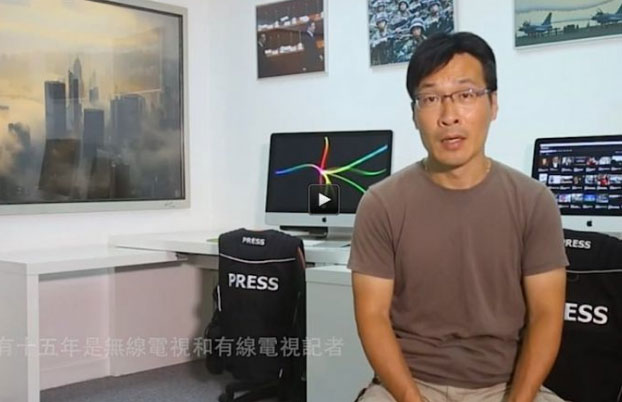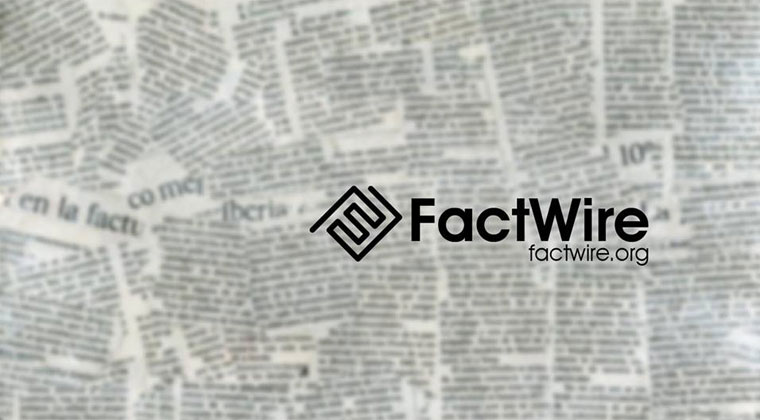The news came out of nowhere: A total of 26 China-made SMRT trains were being sent back to fix defects.
And who broke it? A new Hong Kong-based media outfit with a dodgy-sounding name, FactWire.
Turns out, they are a legit crowdfunded experiment in investigative journalism that puts public interests ahead of business interests.
What a mouthful.
But here's what we know about them:
Who: FactWire is founded by veteran Hong Kong journalist Ng Hiu-tung, who is in his mid-forties.
 Photo via FactWire promo video
Photo via FactWire promo video
He cut his teeth in journalism interviewing student-guerillas rebelling against Myanmar’s military junta in the jungles by the Thai-Burmese border during his university days.
The stated aim of his FactWire project is to focus purely on in-depth investigative journalism, without speculation or commentary.
And he has faith it will work — at least in democratically-conscious Hong Kong.
He told Quartz: “If FactWire can show the credibility of its investigative strength, I think news organisations and the public will be willing to subscribe to it.”
"The public still appreciates good journalism."
What: FactWire says it is a watchdog news organisation, according to their code of ethics.
Their founding is in response to the gradual death of journalism in Hong Kong that is increasingly at the mercy of tycoons and corporate interests: South China Morning Post, Hong Kong’s main English-language paper, was acquired by e-commerce giant Alibaba last year, after a perceived decline in quality in recent years.
They are definitely an upstart newswire service, according to Quartz, as it is trying to ply the same trade as the Associated Press and Reuters: They produce stories that will be picked up by other outlets.
FactWire follows the ethos of non-commercial “public service” journalism — which means the money they make will be reinvested back into doing prim and proper journalism, devoid of opinion but relying only on hard facts.
How: More than 3,300 people have given a total of HK$4.7 million (approximately S$820,000) since their crowdfunding campaign ran in September 2015 on FringeBacker.
Amazingly, they reached the HK$3 million (S$520,000) target, nine days ahead of the 60-day deadline.
The crowdfunded amount they have received is enough to launch the service and keep it going for about 15 months, Ng said.
He intends to charge other news organisation HK$100,000 (S$17,400) annually for publishing FactWire copy.
The other public service news outfit is the Hong Kong Free Press, which launched in June 2015 after raising an initial HK$150,000 (S$26,000), also through crowdfunding.
Why: So, why did a Hong Kong-based media entity choose to cover a story focused on SMRT?
Most likely because of the China connection.
In May 2016, FactWire released its first stories that were part of an investigation into the Taishan nuclear power plant in Guangdong on the Chinese mainland.
This facility resides just 130 km (81 miles) from Hong Kong, so there is vested interest in what is happening just off their shores.
FactWire reported that key reactor components were not manufactured in France, as previously thought, but rather, in China.
This prompted safety concerns, but the domes of the pressure reactors have already been sealed.
In all likelihood, although it is purely speculative, the SMRT story might have originated from Hong Kong's MTR Corp.
This is so as MTR Corp, just like SMRT, had also placed orders with the same Chinese train manufacturer CSR Sifang, just that they have not taken delivery of any new trains from the Chinese manufacturer yet, as reported by The Straits Times.
If you like what you read, follow us on Facebook and Twitter to get the latest updates.
If you like what you read, follow us on Facebook, Instagram, Twitter and Telegram to get the latest updates.
